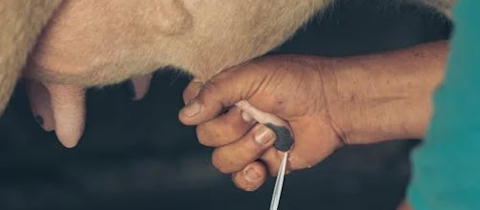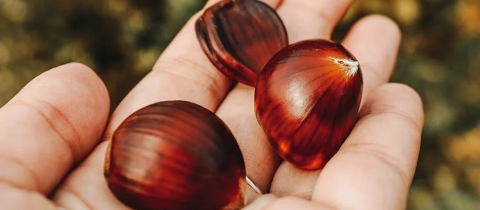This post needs a bit of a background. A few weeks ago we noted that the Dean of Pharmacy at the University of Toronto was organizing a trial on using homeopathic preparations for the treatment of ADHD. A letter to the Dean asking how a Faculty of Pharmacy would get involved in studying something that is dismissed by the vast majority of the scientific community seemed appropriate. Eventually this letter was signed by more than ninety scientists and physicians and was sent off. There was no reply. In our view, not only is this a waste of funds, it adds an aura of respectability to a scientifically bankrupt notion. This is especially disturbing now in face of the measles outbreak since the private clinic where the study is to be carried out is a supporter of “nosodes,” the homeopathic “alternative” to vaccination. The original letter sent to Dr. Boon is reproduced below the following opinion piece that appeared in the Montreal Gazette.
Academic Freedom Comes With Academic Responsibility
Academic freedom is sacrosanct in universities. Researchers must be free to pursue their ideas, be they conventional or peculiar. But academic freedom also includes the freedom of others to question those ideas, and scholastic consideration dictates that those questions be addressed, especially when they are posed in a courteous letter signed by ninety scientists and physicians from around the world, including two Nobel Laureates. The letter in question was sent to Dr. Heather Boon, Dean of the Leslie Dan Faculty of Pharmacy at the University of Toronto and focused on a study she was organizing to investigate the use of homeopathic preparations in the treatment of Attention Deficit Hyperactivity Disorder (ADHD) in children. Those of us who signed the letter, along with the vast majority of the scientific community, believe that numerous studies have concluded that the effects of homeopathy do not extend beyond a placebo response. The letter sought Dr. Boon’s views on why a Faculty of Pharmacy was organizing a trial that legitimizes homeopathy, a practice that has no scientific plausibility. Homeopathy is not an umbrella term for alternative modalities. It is a very specific practice that originated before the dawn of the scientific era when little was known about disease or chemistry. Samuel Hahnemann, a well-meaning German physician, concluded that a substance that causes symptoms in a healthy person cures those symptoms in a sick person if it is sufficiently diluted. His process involved thumping the solution into a leather pillow between dilutions, and finally using a drop to impregnate a sugar tablet that would then serve as a “homeopathic medicine,” the term deriving from the Latin for “similar” and “disease.” Hahnemann could not have realized at the time that the final solution did not contain a single molecule of the original substance. Today, homeopaths have to contend with chemical knowledge and have proposed that the curative effects are to be explained by the sequential dilutions leaving an imprint on the solution, although they appear to be at a loss to explain how such an image is transferred to a sugar pill or how a molecular ghost can have healing properties. Stymied by the implausibility of nonexistent molecules having therapeutic potential, homeopaths point to papers in the scientific literature demonstrating a larger than placebo effect, as well as to the millions around the world who use homeopathy with satisfaction. Neither of these is surprising. Toss a hundred coins into the air and count heads and tails. Maybe 45 heads, 55 tails. Maybe 48 tails 52 heads. But do this a hundred times, and one event may come out 30 heads and 70 tails. If this is the only one reported, the impression would be that the coins were not fairly weighted. So it is with studies of homeopathy. Just by chance alone, some results will indicate efficacy. That’s why we look at all the studies and come to the conclusion that we are looking at a placebo response, which of course is valuable and should not be dismissed. Indeed, couple the placebo response with the fact that homeopathic treatments are administered by caring people who spend a lot more time with patients than physicians can, and that they mostly target self-limiting conditions or diseases that have their ups and downs, and you have a formula for satisfaction. ADHD is a serious condition that merits serious research. Apparently the University of Toronto researchers carried out a pilot study involving homeopathy that seemed to indicate benefit. That study, however, was unblinded, devoid of randomization, had no control group and relied on a subjective outcome, making any data derived from it essentially meaningless. Even if we were to attach some importance to the claimed reduction of symptoms, the effect was about half of that seen with conventional medication, making the homeopathic treatment clearly inferior. Furthermore the proposed study would use individualized treatments for each subject as determined by a homeopathic consultation, so at best the results would be ambiguous in terms of making any recommendation. The study is actually to be carried out at the Riverdale Homeopathic Clinic, a private institution that also offers ear candling, cranial sacral therapy and “nosodes,” which are homeopathic versions of vaccines. No public funding is involved; support comes from a foundation dedicated to alternative medicine. Nevertheless, one wonders why with various nutritional and biofeedback treatments with significant potential for helping with ADHD needing exploration, a scientifically insolvent notion is being pursued. One also wonders why a Dean of Pharmacy at a major Canadian Institution did not take the time to respond directly to repeated requests for her comments on a contrary opinion expressed by a large number of notable scientists and physicians.
ORIGINAL LETTER
Dear Dr. Boon
The following originates from the McGill University Office for Science and Society and has been signed by scientists and physicians from the international community. We are all devoted advocates of academic freedom and support the right of researchers to pursue any field of study they feel has merit. But we also feel that it is fair to ask colleagues questions about how a particular study they are engaged in may contribute to the bank of scientific knowledge. It should be emphatically stated that those who have added their name to this letter, including two Nobel Laureates, in no way wish to interfere with your research. Everyone is just interested in your response to the concerns expressed here. Those concerns deal with the trial we understand you are organizing to investigate a homeopathic approach to the treatment of ADHD. First, let us point out that the McGill Office for Science and Society accepts no funds from any vested interest; our only allegiance is to the scientific method and to evidence-based science. It makes no difference to us whether any substance, including homeopathic products, is regulated or not, as long as the decision is arrived at through proper scientific evaluation rather than emotion, "they say" or pressure from vested interests. Along with the majority of scientists, we find the notion of nonexistent molecules having a physiological effect through leaving some ghostly impression in water that is then transferable to a sugar pill simply untenable. Even if some sort of "memory" effect prevailed, there is no reasonable explanation for how it could affect biology. Furthermore, after all the sequential dilutions and succussions, the original impurities in the solvent would be more extensively present in the final solution than any component from the original homeopathic source. After evaluating the scientific literature, including a comparison of 110 homeopathic studies with 110 conventional studies for a number of disorders and outcomes, the most likely conclusion is that any benefit attributed to homeopathy can be ascribed to a placebo response. Generally, scientists look askance at homeopathy, but don't bother much with it because they consider it to be harmless folly. Unfortunately, this is not the case when homeopaths recommend "nosodes" as alternatives to vaccination, or attack the use of antibiotics for infections, or offer unproven treatments for ADHD. The reason for this extensive email is to solicit your rationale, given your training as a pharmacist, for the study you are carrying out. Is the motivation a concern that parents are wasting money and possibly sacrificing effective treatment by resorting to homeopathy for ADHD, and that the study may clarify the situation? Or is there a belief that there may be some factor other than a placebo response involved? In that case, what mechanism may be operative? You allude to the results of a pilot study that warranted this further research. That study, however, was unblinded, devoid of randomization, had no control group and relied on a subjective outcome, making any data derived from it highly questionable. You also note that the reduction of symptoms found in the pilot study was about half of that seen with conventional medication, making the homeopathic treatment clearly inferior. Basically, as you have gathered, we are curious about why, given the need to investigate natural therapies that may actually have a potential for benefit, and faced with a scarcity in funding, a Department of Pharmacy is interested in investigating a subject that has been addressed extensively in the literature and has been found wanting both in evidence and plausibility. There is also a concern that just the mounting of such a study by a highly reputable researcher at a top notch university will be used by homeopaths to justify diverse aspects of their practice, including steering patients away from evidence-based treatments. Looking forward to your comments, Regards Joe Schwarcz Director, McGill Office for Science and Society
David Harpp Macdonald Professor of Chemistry Tomlinson Chair in Science Education
Ariel Fenster Associate Director, McGill Office for Science and Society . Harold Kroto Francis Eppes Professor of Chemistry Chemistry and Biochemistry Department The Florida State University
Roald Hoffmann Professor of Chemistry Cornell Unversity
David H. Gorski, MD, PhD, FACS Chief, Breast Surgery Section Wayne State University School of Medicine Managing Editor, Science-Based Medicine
Phil Gold CC, OQ, MD, PhD, FRSC, MACP, FRCP(C) Douglas G. Cameron Professor of Medicine, Professor of Physiology and Oncology, McGill University Executive Director Clinical Research Centre McGill University Health Centre
Nahum Sonenberg, FRS McGill University Department of Biochemistry Goodman Cancer Research Center
Brian Alters, PhD, FAAAS Professor President, National Center for Science Education Chapman, Harvard, McGill Universities
Mark Crislip MD President, Society for Science-Based Medicine
Geoffrey C. Kabat, Ph.D Cancer Epidemiologist, Dept. of Epidemiology and Population Health Albert Einstein College of Medicine, Bronx, NY.
David Colquhoun FRS Professor of pharmacology University College London, UK
Hon. Kelvin K. Ogilvie, C.M., Ph.D., D.Sc., F.C.I.C., H.col.
Professor Richard M Sharpe FRSE, College of Medicine & Veterinary Medicine University of Edinburgh, Scotland
Paul A. Offit, MD Professor of Pediatrics Division of Infectious Diseases The Children's Hospital of Philadelphia
Richard G. Margolese Professor of surgical oncology JGH, Montreal
Timothy Caulfield, LLM, FRSC, FCAHS Canada Research Chair in Health Law & Policy Trudeau Fellow and Professor, Faculty of Law and School of Public Health Research Director, Health Law Institute, University of Alberta
Leonard W Fine PhD Senior Fellow and Scientific Program Officer Science Foundation Arizona Professor of Chemistry Emeritus Columbia University
Haim Abenhaim, MD, MPH, FRCSC Obstetrician & Gynecologist, Maternal Fetal Medicine Specialist Associate Professor of Obstetrics & Gynecology Jewish General Hospital, McGill University
Steven Novella, MD Assistant Professor of Neurology, Yale University School of Medicine Executive Editor, Science-Based Medicine
Daniel Lalla, MDCM FCFP Faculty Lecturer, McGill Family Medicine Rural site Director, Cowansville Medical Clinic Physician, BMP Hospital and CHSLD de Cowansville
Seymour Mishkin MDCM, FRCP(C) Assoc. Prof of Medicine McGill Senior Physician Royal Victoria Hospital (MUHC)
Richard J. Munz, Emeritus Professor, Department of Chemical Engineering McGill University
Dennis Geist President, Charles Darwin Foundation
Mark Roper MD Director of the Division of Primary Care at McGill University Health Centre
Bruce M. Shore, Psychologist Professor Emeritus of Educational Psychology Fellow of the American Educational Research Association
Janine Mauzeroll, Associate Professor Chemistry Department McGill University
Jacques Derome, FRSC Emeritus Professor McGill University
Charles Roth Professor Department of Mathematics and Statistics McGill University
John J. Jonas, O.C., C.Q., FRSC, Ph.D. Birks Professor of Metallurgy Emeritus Materials Engineering, McGill University
Arie Benchetrit, MD. PLASTIC SURGEON Cosmedica Clinic 1, rue Holiday, suite 813 Pointe-Claire, Qc., H9R 5N3
Kosta Steliou, Ph.D. Chairman & CEO, PhenoMatriX, Inc. Professor Emeritus of Chemistry Research Professor Emeritus of Pharmacology Professor, Cancer Center, Boston University School of Medicine
David S. Rosenblatt, MD Holder, Dodd Q. Chu and Family Chair in Medical Genetics Professor, Departments of Human Genetics, Medicine, Pediatrics, and Biology McGill University
Josh Bloom, Ph.D. Director of Chemical and Pharmaceutical Science American Council on Science and Health New York, NY
Edith Zorychta, PhD Associate Professor, Departments of Pathology, Pharmacology and Therapeutics. Director of Graduate and Postdoctoral Studies, Department of Pathology McGill University
John Richardson, MDCM, FRCP(C), PhD Professor, Departments of Pathology, Neurology and Neurosurgery, Miranda Fraser Chair in Comparative Pathology McGill University
Olivia Jensen Professor, Geophysics Department of Earth and Planetary Sciences McGill University
Yoni Freedhoff MD Medical Director, Bariatric Medical Institute Assistant Professor, Department of Medicine, University of Ottawa
Terry Polevoy, MD, FRCP(C) QuackeryWatch.com
Ivan Rohan MD Director of Continuing Medical Education Department of Family Medicine McGill University
Henry Leighton, Professor Emeritus Department of Atmospheric and Oceanic Sciences McGill University
James Fresco PhD Professor of Chemistry (retired) McGill University
Harriet A. Hall, MD Co-Editor, Science-Based Medicine
Christopher Labos MD CM, MSc, FRCPC
George B. Kauffman Professor of Chemistry California State University, Fresno Fresno, CA 93740-8034 USA
Lorne Trottier, M. Eng Co-founder Matrox Corporation
Richard Koestner Professor of Psychology McGill University
Jack Hoffman Pharmacist, Montreal
Mark Yaffe MDCM Professor, Department of Family Medicine McGill University
Michael Rosengarten B. Eng. M.D. Adjunct professor of medicine McGill University
Linda Reven Professor of Chemistry McGill University
Youla Tsantrizos Professor of Chemistry McGill University
Jeffrey L. Derevensky Department of Educational & Counselling Psychology Professor, School/Applied Child Psychology Professor, Psychiatry
J. (Quim) Madrenas, MD, PhD, FCAHS Canada Research Chair in Human Immunology Professor and Chairman Department of Microbiology & Immunology Director, Microbiome and Disease Tolerance Centre McGill University Executive Director, CIHR Human Immunology Network
Lee Wohl BPharm, MBA Clinical pharmacist, Montreal
Stephen Barrett M.D. Quackwatch.org
Steven R. Shaw, Ph.D. McGill University Director, Resilience, Pediatric Psychology, and Neurogenetics Connections Lab Editor, School Psychology Forum
Alvin Shrier PhD Hosmer Chair and ProfessorDepartment of Physiology Director, Cell Information Systems Bellini BuildingMcGill University Life Sciences Complex
John Harrod Professor of Chemistry (Emeritus) McGill University
Scott Bohle Professor of Chemistry McGill University
John M. Dealy, FRSC Professor Emeritus Department of Chemical Engineering McGill University
Abraham Fuks MD Professor of Medicine McGill University
Prof. Alan McHughen, D.Phil. University of California, Riverside, Ca.
David Ronis Professor of Chemistry McGill University
Ann Wechsler Professor of Physiology McGill University
James P. Snyder Director of Biostructural Research Emory University Atlanta, GA
Sondra Sherman, BSc. BFSc. PDt. CDE Certified diabetes dietitian educator
Jann Johnson Bellamy, J.D. Tallahassee, Florida
Jonathan Toker PhD Toker Engineering, Los Angeles, CA
Ilene Gilbert P. Dt. (Private Practice)
Deborah Schwarcz MDCM, CCFP-EM Family and Emergency Physician McGill University Health Center
Hanadi Sleiman Professor of Chemistry Canada Research Chair in DNA Nanoscience, Tier I
Masad J. Damha, James McGill Professor of Chemistry McGill University
Karl Schwarz MD, MSc, FRCS(C) Plastic surgeon, Montreal
Dr Alyce Fischer Dental Surgeon
Leon Glass, FRSC Isadore Rosenfeld Chair in Cardiology and Professor of Physiology McGill University
Miriam Salamon BSc MD CCFP FCFP Faculty Member, Department of Family Medicine University of Ottawa
Gabriella Coleman Wolfe Chair in Scientific and Technological Literacy Department of Art History & Communication Studies McGill University
Alan G. Marshall Robert O. Lawton Professor of Chemistry & Biochemistry Chief Scientist, Ion Cyclotron Resonance Program National High Magnetic Field Laboratory Florida State University
April Colosimo, Associate Librarian, McGill University
Karen Harpp Associate Professor, Colgate University
Carmen E. Rexach Professor, Mt San Antonio College, Walnut, California member, Infectious Diseases Society of America
Normand Voyer, Chemist, OCQ, FCIC Professor of Bioorganic Chemistry Laval University Director of PROTEO
David Zlotnick MDCM Director Tarem Jerusalem, Israel
Lisa Zlotnick MDCM Jerusalem, Israel
Kevin M. Folta Professor and Chair, Horticultural Sciences Dept. University of Florida
Dr. David King Senior Lecturer | Evidence-based Practice School of Medicine The University of Queensland
Karine Auclair Professor of Chemistry McGill University







